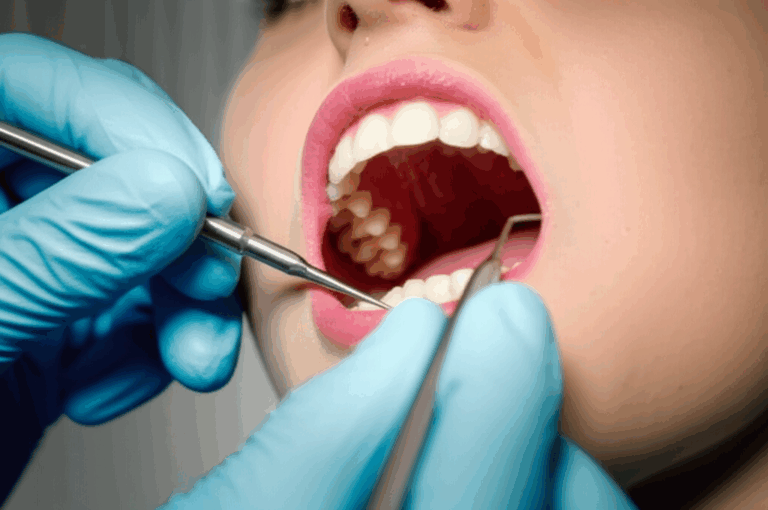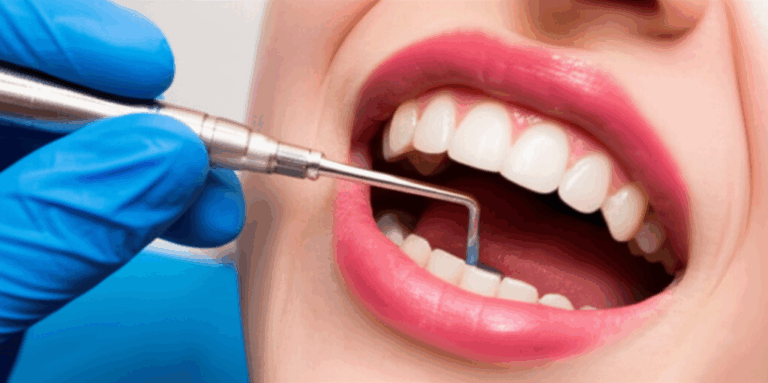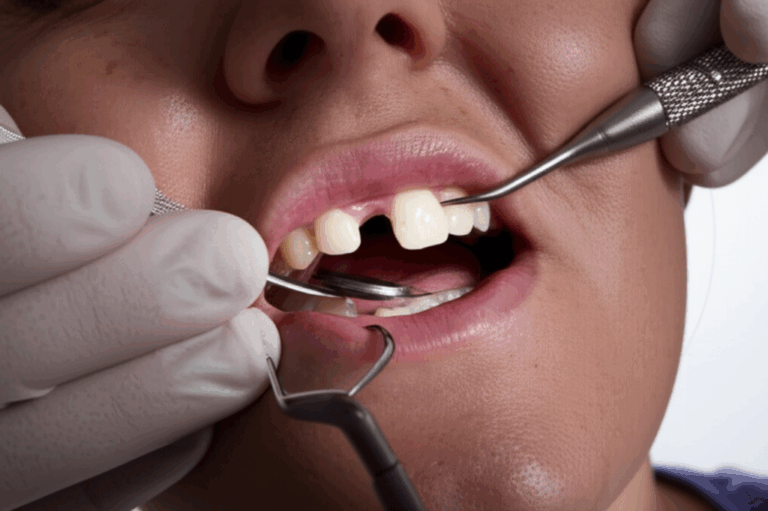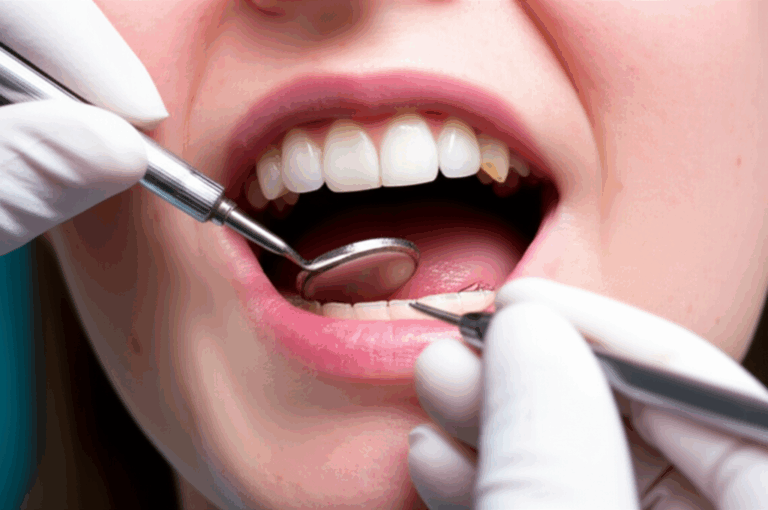
Can a Dentist Deny Treatment? Your Rights & the Dentist’s Duties Explained
If you’ve ever wondered, “Can a dentist deny treatment?” this article is for you. Here, I’ll break down when a dentist can say no, when they can’t, and exactly what it means for your health and your rights. From unfair discrimination to patient abandonment, we’ll go over the facts in simple words with real examples, so you can leave your worries behind the next time you visit a dental office.
Table of Contents
Why Would a Dentist Say No?
Let’s be honest—no one wants to hear “no” from the dentist. But it can happen, and sometimes for reasons you might not think of.
A dentist may turn down treatment if you’ve missed too many appointments or haven’t paid your bills. Even though it can be hard, it’s their choice if it’s been a pattern. That’s not all. Sometimes, a dentist might say no if they think a certain treatment isn’t good for you or is something they’re not trained to do. For example, if you want your dentist to do a very tricky surgery they can’t do, it’s better for them to say no and send you to someone else.
Other reasons could be bad or dangerous behavior in the office. If a patient shouts at the staff or acts in a threatening way, a dentist can—and should—say no and keep everyone safe.
But not all “no’s” are right. Dentists can’t just refuse you based on where you come from, who you are, or if you have a disability. Next, let’s look deeper into when dentists can or can’t say no.
Is it Legal for a Dentist to Deny Care?
This comes down to the law, dentist rules, and your rights. Dentists can legally say no in some situations:
- Missing many appointments again and again
- Not paying your bills when you agreed to
- Being mean, rude, or dangerous to the dentist or workers
- Asking for things the dentist can’t do
But the law also keeps patients safe. Dentists can’t say no just because of discrimination based on:
- Race
- Color
- Religion or belief
- Gender
- Country you’re from
- Disability (like using a wheelchair, hearing loss, HIV, or mental health)
- Age (mostly)
Table: Legal and Illegal Reasons to Deny Treatment
| Reason for Denial | Allowed by Law? |
|---|---|
| Repeated missed appointments | Yes |
| Non-payment of bills | Yes |
| Disruptive or unsafe behavior | Yes |
| Race or ethnicity | No |
| Disability (e.g., HIV, wheelchair) | No |
| Need for a specialist | Yes |
References:
- American Dental Association – Code of Ethics
- U.S. Supreme Court: Bragdon v. Abbott (1998)
Can a Dentist Refuse Care Because of Money or Insurance?
Money can be a problem, and dental care isn’t always cheap. So can a dentist refuse to see you if you can’t pay or if you have an insurance they don’t take?
Short answer: Sometimes yes, sometimes no.
- If you owe money: A dentist can say they won’t see you if you haven’t paid for past care, especially if you keep missing payments.
- No insurance: Dentists can pick not to see patients without insurance, unless it’s an emergency.
- Medicaid: Dentists don’t have to accept Medicaid, but if they do, they have to treat all with the same insurance the same way.
- Payment plans: Not all dentists will let you pay over time. Ask before you start treatment.
If money is tight, talk to your dentist early. Sometimes, they have ideas or can send you to someone else who fits your budget. You can check out china dental lab for some money-saving ideas.
What if a Dentist Doesn’t Like a Patient?
It can feel like you’re being dropped for no reason, but dentists have to leave their personal opinions out of their work.
Dentists can stop seeing a patient for many reasons:
- Bad behavior like always arguing or never following advice
- Causing trouble in the office with rude or dangerous acts
- No longer trusting each other
But here’s the deal: Dentists have to do things the right way. They should tell you in writing that they won’t be your dentist anymore. Usually, they’ll give you a heads up (about 30 days) and time to find a new dentist. They have to finish any major or urgent work before they say goodbye. If they just stop talking to you or quit when you still need help, that’s called patient abandonment, and it’s not allowed.
Can Medical Conditions Be a Reason for Refusal?
Health problems can get tricky. But when it comes to things like diseases or disabilities, the law is clear: dentists can’t say no just because you have an illness or disability. Here’s what this means:
Covered conditions include:
- HIV or AIDS
- Diabetes
- Physical handicaps
- Mental health problems
For example, in the famous Supreme Court case Bragdon v. Abbott, a dentist didn’t want to treat someone with HIV in his office. The court said that’s not allowed unless there’s a real, serious risk (and you must prove it).
Dentists can send you to a specialist if your care is something they don’t know how to do. For example, if you have a really uncommon problem, your dentist might tell you to see a person who sees that all the time.
Can Dentists Say No in an Emergency?
If you’ve had a bad toothache or broke a tooth, you know you can’t wait. In an emergency, dentists normally have to help, at least until you’re safe. This counts even if you can’t pay right away or have no insurance.
It’s part of their rulebook: Dentists can’t turn away someone really hurting or with life-threatening dental problems just because of money, insurance, or other non-health reasons. After emergency care, they can send you to another dentist.
A real story: One dentist in my town got a call late at night—a patient in a lot of pain, cheek swelling, and scared. The patient couldn’t pay, but the dentist still gave care and explained what to do next.
If you need help fast and you’re scared they’ll turn you away, tell them it’s a true emergency. Most dentists will help you until you’re okay.
What Rules Do Dentists Have to Follow?
Dentists have to follow lots of laws and rules to keep patients safe. Let’s put it simply:
- State Dental Boards: Each state in the US has its own rules about patient rights, dentist jobs, and how to stop care.
- American Dental Association (ADA): Makes the rules for dentists all over the country. The basic rules: don’t hurt people, treat everyone fairly, and always do what’s best for the patient.
Dentists who break these rules can get in big trouble, be reported, and could even lose their license.
References:
- ADA Principles of Ethics and Code of Professional Conduct
- State Dental Practice Acts
What Is Patient Abandonment?
What if your dentist just stops calling you back? Or won’t finish your crown after starting it? This isn’t just being rude—it could be patient abandonment.
Patient abandonment means:
- They let you go with no written warning
- You don’t get time to find a new dentist
- You’re left in the middle of important dental work
Dentists have to give you warning and sometimes finish anything urgent first. Good dentists always give written notice, help send your records, and suggest other places to go.
If this happens to you, contact your state dental board to make a complaint. That office can check into what happened and help you figure out what to do next.
What Should You Do If You’re Denied Dental Care?
Hearing “no” doesn’t feel good. But you have choices. Here’s what to do:
Checklist: What to do if you’re refused care
- [ ] Ask for a simple reason (on paper, if you can)
- [ ] Ask for a referral to another dentist
- [ ] Get your dental records
- [ ] Call your state dental board if you think your rights are broken
Maintaining a Good Dentist-Patient Relationship
A good relationship takes both sides working together. Here are some tips to help keep things smooth:
For patients:
- Be on time and let the dentist know if you can’t make your visit.
- Be nice to the staff and follow simple rules.
- Tell the truth about your health and money situation.
- Ask questions—knowing more helps you!
For dentists:
- Be clear when talking about care and money.
- Give notice and advice if saying goodbye.
- Tell you why if treatment changes.
- Follow the rules and always put patient safety first.
When everyone does their part, things work better and both sides feel respected.
Quick FAQ
Can a dentist refuse treatment for any reason?
No. Dentists need a real, legal reason—like unpaid bills, bad behavior, or if you want a treatment they can’t do. They can’t say no because of race, gender, disability, or religion.
What happens if a dentist is accused of patient abandonment?
They could be checked by the state dental board and might get fined or lose their license.
If I’m refused treatment, do I get my dental records?
Yes. You can ask for your records so you can see another dentist.
Am I guaranteed care during an emergency?
Dentists must help in emergencies to stabilize you, even if you can’t pay right away or have no insurance.
What to Remember
- Dentists can say no—but only for proper, legal reasons.
- You’re protected from unfair treatment.
- Dentists must help in emergencies, even if you can’t pay.
- It’s not okay for a dentist to leave you in the middle of treatment with no warning.
- Always ask questions, check the rules, and know your rights.
- Keep talks friendly and clear with your dental office.
- If something goes wrong, there are ways to get the care you need.
For more about dental care or finding labs and providers, you can look into options like zirconia lab for strong products.
Don’t be afraid to stand up for your dental health—know your rights and ask for good, safe treatment!








